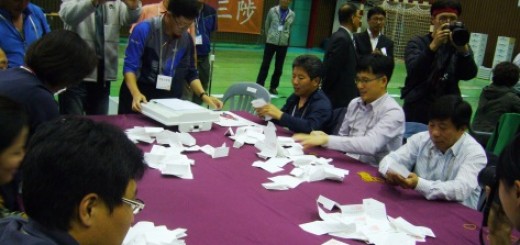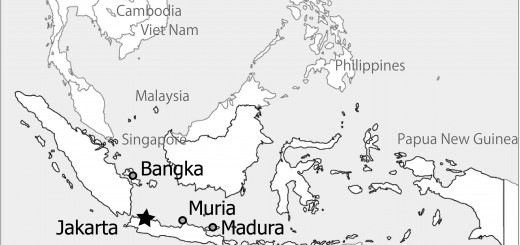Japan to Finance Construction of American Nuclear Power Plants? Nuke Info Tokyo No. 126
The deception of the Trade and Investment Insurance for Preventing Global Warming scheme
On July 29 the Ministry of Economy Trade and Industry (METI) announced the establishment of the Trade and Investment Insurance for Preventing Global Warming scheme within Nippon Export and Investment Insurance (NEXI), saying that it aimed to implement the scheme by around January 2009. METI said that the purpose was to assist developing countries which are serious about working with Japan to respond to global warming, but for some strange reason the scheme is not restricted to developing countries.
Nuclear power plants and equipment are specifically included as examples of the type of exports to which the scheme will apply. Clearly the scheme has been designed to facilitate such exports, new nuclear plants in the US being the prime candidates.
In October the Japan Bank of International Cooperation (JBIC) will be split up, with JBIC’s Overseas Economic Cooperation Operations merging with Japan International Cooperation Agency (JICA) and JBIC’s International Financial Operations merging with three other government financial institutions to form the Japan Finance Corporation (JFC). In principle, finance provided by JFC will be restricted to developing countries, but exceptions may be approved by regulation for investment finance that maintains or improves the international competitiveness of Japanese industry. Cabinet approved such a regulation on August 28 to allow JFC to provide investment finance for the construction of nuclear power plants in developed countries.
 |
|
Cartoon by Shoji Takagi
|
On June 7 Akira Amari, then Minister of Economy Trade and Industry, and US Energy Secretary Samuel Bodman, issued a joint statement on Japan-US nuclear cooperation in which they expressed their “intention to consult on potential financing support measures that would facilitate nuclear power plant construction in the United States of America, incorporating the financial institutions identified by METI (Japan Bank for International Cooperation (JBIC) as well as Nippon Export and Investment Insurance (NEXI)), and identified by the United States Department of Energy (DOE Loan Guarantee Program Office).”
Clearly JBIC finance and NEXI export insurance for US nuclear power plants are part of the same overall plan.
NEXI insures Japanese companies’ export-related risks which cannot be insured by standard commercial insurance: for example war, prohibition of foreign currency conversion and importer bankruptcy. In the past such insurance was provided directly by MITI (now METI), but in April 2001, in the context of a reorganization of central government agencies, the function was shifted to NEXI, which was established as an independent administrative institution. (The Japanese Government reinsures insurance agreements underwritten by NEXI.) It is planned that NEXI will be converted into a fully government owned corporation. Until 2004, NEXI was the exclusive provider of foreign trade and investment insurance services in Japan, but in 2005 the Japanese government deregulated the market and started to issue licenses to private insurers both domestic and foreign.
Under these circumstances, on July 22 the Export Insurance Subcommittee of the Industrial Structure Advisory Council compiled a report on the future of the export insurance system. The following is a translation of an extract from the report.
“Global environmental problems have become an international issue and Japan has an international responsibility to encourage the expansion overseas of excellent environmental and low energy technology. Furthermore, there are calls for the government to cover risks associated with the expansion overseas of projects which entail extremely high risks, such as aircraft and nuclear industry related projects. In the context of climate change, it is extremely important that export insurance be integrated with national policy.”
In that case, it would seem to be preferable for the government to continue to carry out the role directly, without corporatizing and encouraging private involvement in export insurance. But leaving that aside, important issues identified in the above report were brought together in the Trade and Investment Insurance for Preventing Global Warming scheme. (Another major issue is already covered by the Comprehensive Natural Resources and Energy Insurance scheme, which is aimed at securing natural resources.)
However, is it really possible to combine nuclear energy-related projects and the overseas expansion of environmental and low-energy technology under a single scheme? Is nuclear energy an effective response to global warming? How should we view the potential for radiation related disasters? Furthermore, is it appropriate to include projects with such different risks and different target countries under the one scheme? These are all serious questions that must be answered.
On June 23, Sankei News reported, “Even US financial institutions have limited experience of financing the construction of nuclear power plants and ‘it is difficult to obtain finance for new construction projects’ (Agency for Natural Resources and Energy).” There would definitely be opposition to the establishment of a separate “extremely high risk” nuclear power plant insurance support scheme to serve the interests of the US. So in order to avoid such criticism, they have surreptitiously slipped it into the Trade and Investment Insurance for Preventing Global Warming scheme.
It is unclear in what form JBIC/JFC intends to provide finance for the construction of nuclear power plants in developed countries, but perhaps it will be a similar makeshift arrangement to the NEXI scheme. In April 2005, the Japan Atomic Industrial Forum issued a report containing the following proposal:
“We understand that JBIC’s in principle ban on finance for developed countries was instituted to prevent pressure being applied to private financial institutions. However, since even in developed countries there are cases where it is difficult for private financial institutions to provide the very long term finance required for the construction of nuclear power plants, there is room for reviewing this in principle ban in the case of the export of nuclear power plants.”
The idea goes like this. US financial institutions find it difficult to provide finance for the construction of American nuclear power plants, despite America’s own loan guarantee scheme, so JBIC/JFC will provide some finance and, backed by NEXI’s export insurance, Japanese private financial institutions will provide some more finance. One must say that it is an improbable scenario for such an “extremely high risk” industry.
Of course it must not be forgotten that before Japan exports nuclear technology to the US, it needs to consider the fact that the US is a nuclear weapons state.
Despite these concerns, a review of JBIC’s and NEXI’s Environmental and Social Guidelines is deliberately vague about the environmental issues associated with nuclear-related projects. JBIC/NEXI are taking a hands-off approach, leaving METI to carry out a grossly inadequate review of environmental and social issues specific to nuclear projects (nuclear safety, nuclear waste and proliferation). Neither the current guidelines, nor the new draft guidelines contain any requirement for freedom of information or stakeholder involvement for these aspects of nuclear projects supported by JBIC/NEXI. Such a requirement might not be an obstacle for nuclear exports to developed countries, but it would certainly make it difficult to approve finance and export insurance for nuclear projects in many third world countries.
In the October 2002 edition of the journal Denki, Yasuo Nakagawa (then head of the nuclear division of the Japan Electrical Manufacturers’ Association) said in the case of the export of nuclear plants that responsibility should be made clear for issues of nuclear proliferation, safety assurance, response to nuclear accidents, spent nuclear fuel and radioactive waste. Under the Foreign Exchange and Foreign Trade Act, METI is the organization in charge of export control of safety assurance. METI also carries out safety confirmation.
However, the details of the safety assurance system for nuclear exports are not publicized and JBIC/NEXI Guidelines make no reference to the system. Recognizing this deficiency, JBIC/NEXI plan to include a brief explanation of the system on their web sites, but METI shows no inclination of becoming more transparent.
We demand that nuclear power plants and individual parts and equipment for nuclear power plants be removed from The Trade and Investment Insurance for Preventing Global Warming scheme. In addition, we demand that:
- the Trade and Investment Insurance for Preventing Global Warming scheme be restricted to developing countries;
- no exceptions be allowed for projects financed by NEXI and JBIC/JFC;
- environmental and social issues specific to nuclear energy projects (nuclear safety, nuclear waste and proliferation) be properly covered in JBIC’s and NEXI’s guidelines and appropriate checklists be prepared;
- the export control system for nuclear-related projects be made transparent.
Baku Nishio (CNIC Co-Director)


